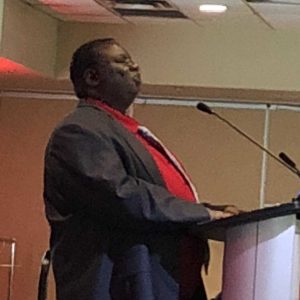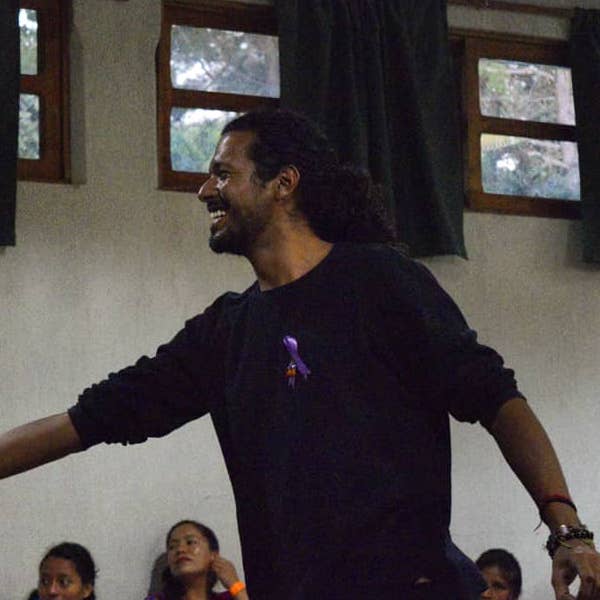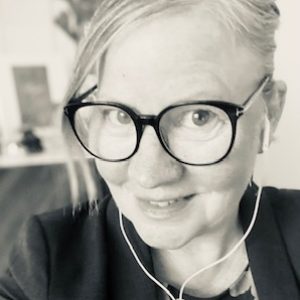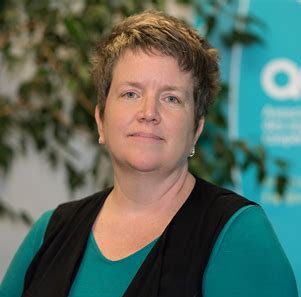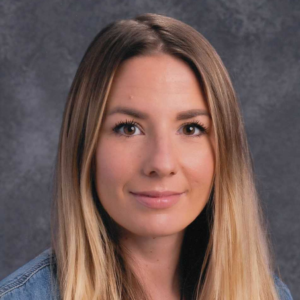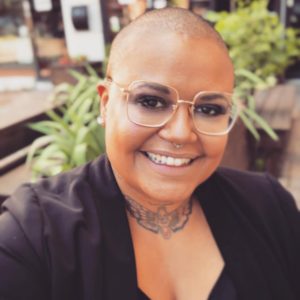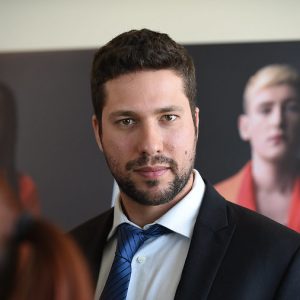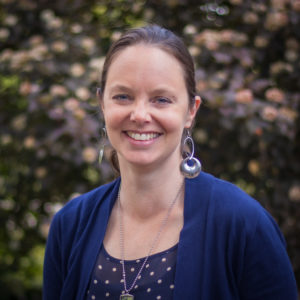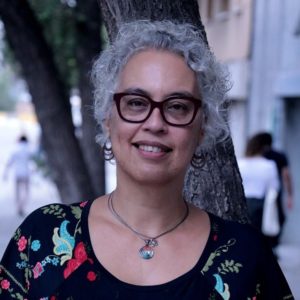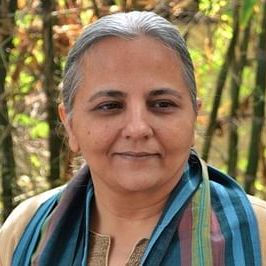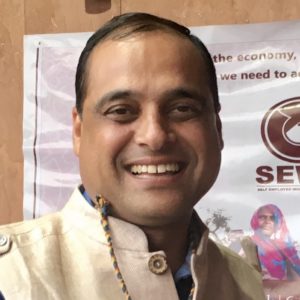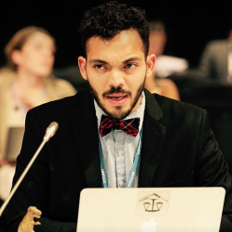

The 2021 conference focused on Human Dignity, while addressing gender equality and the empowerment of women as a cross-cutting theme. Human dignity is the belief that every human being is uniquely valuable and therefore ought to be accorded the highest respect and care. The concept of human dignity is intrinsic to non-discriminatory practices along with equal rights for all. Within the context of the global pandemic, the risk of food insecurity, the lack of access to health services and educational opportunities, the hit to women’s workplace participation, and the rise of a “shadow pandemic” are threatening human dignity, and especially women’s rights.
Virtually, on March 9 (12 pm – 5 pm EST), 10 (11 am – 4:30 pm EST), 11 (12 pm – 4 pm EST), 2021, the One Step Back, Two Steps Forward: Human Dignity Post-COVID conference showcased innovative and creative practices and approaches emerging from SMOs and educators who are searching to adapt to their new realities. Collectively, the conference sessions demonstrated how these different ways of working, which could be either in classrooms or with projects and partnerships overseas, could pave the way to a just and green recovery.
While our conference program is designed with Canadian SMOs, their local partners, and educators in mind, the March 2021 virtual conference is open to the public.
We do! If you are eligible, we can cover/refund the costs of a substitute teacher for the days of the conference (March 9-10-11, 2021). When you register, please indicate it in the registration form. We will contact you as soon as possible with additional information on how to proceed.
*Note that this is currently only available for Canadian teachers.
We will use Zoom for our sessions and the Attendify mobile application, which allows participants to take a look at the schedule, bookmark the sessions they are interested in, get reminders, and interact with one another by personal messaging or by sharing, commenting, liking one another’s content.
For security reasons, the links will be sent the night before and the day of. We hope to provide a safe space for participants to openly contribute.
*Take a look at the visuals below for further explanations or watch this quick onboarding video.
Please allow 24 hours after registering for the conference before accessing the app for syncing purposes.
If you have any problems accessing the event, please contact Spurconference@Acgc.Ca.
with:
The global pandemic has changed many people’s lives and revealed deep-rooted weaknesses in the fabric of our society. The risk of food insecurity, the rise of a “shadow pandemic”, the lack of access to health services and educational opportunities are threatening human dignity and especially rights of people with disabilities and those with literacy challenges. This keynote will highlight the importance of equal access to education as a key dimension of human dignity.
FORMAT: Keynote Panel
With:
Engaging the public is an integral component of how organizations working for universal sustainable development bring about transformative social change. Global initiatives such as the 2030 Agenda and the UN’s Sustainable Development Goals and the Istanbul CSO Development Effectiveness Principles provide globally agreed goals for these organizations. Effective organizations plan and program the best ways to reach these goals, and then reflect based on the results. Ethical organizations pay particular attention to the best ways to relate to others and to the environment throughout the journey, and then reflect on those relationships. It is possible to be effective without being ethical. While often complementary, focusing on both is essential. Ethical and effectiveness principles and goals are tools designed to guide organizations and practitioners. They require stepping back and reflecting on behaviours and practices, working through challenges and issues, and striving not only to do things right, but to do the right things.
FORMAT: Panel, followed by Breakout Discussions
With:
A self-reflection “checkpoint”: examining who we are, understanding privilege and situating ourselves to face the realities of racism and oppression in the classroom. We will also look into how educators can empower students to raise their voices and take action on anti-racism and anti-oppression.
FORMAT: Participative Peer-to-Peer Workshop
With:
Join us in introducing the 2021 Youth Champions and celebrating the engagement of the 2020 Youth Champions Program participants. We will highlight how multigenerational collaborations allow Canadians to engage in global citizenship.
FORMAT: Presentation
With:
Demystifying SDGs in the classroom. This is a peer-to-peer learning experience. Educators are asked to come to the conference prepared to share one practical example of how they teach or engage students on SDGs 2-3-4, particularly those school subjects traditionally not associated with them. We’ll share tips on how to connect global issues with the experiences of students and local communities, and which thematic classroom resources and practices allow SDGs to be best incorporated into the curriculum.
FORMAT: Panel, followed by Facilitated Breakout Discussions
With:
Social innovations operate within a complex environment that includes personal, social, economic, political, and environmental factors. Fishbone Diagrams can be used to brainstorm and assess these factors so that core causal links and underlying assumptions can be explored. In this session in collaboration with the Fund for Innovation and Transformation (FIT), you’ll get a chance to try out the Fishbone Diagram for problem analysis. You’ll also hear about other ways that the Fishbone Diagram can be used for planning and analysis.
FORMAT: Expert-led Workshop
With:
These peer-to-peer learning sessions will look at how anti-racism and inclusivity lenses and approaches can be integrated across the curriculum at different educational levels. Educators will be invited to share practical examples of how they teach or engage students on anti-racism or inclusivity. Which resources or tools have worked best to engage your students and why?
FORMAT: Panel, followed by Facilitated Breakout Discussions
With:
This training aims to equip teachers to facilitate global citizenship education sessions in a participatory online mode and in a hybrid format, taking into account the situation of the pandemic. The facilitators are primary and secondary school teachers who will begin the session with an interactive presentation and then move on to work in small groups. A pedagogical guide with activity sheets will be shared with participants.
FORMAT: Expert-led Workshop
With:
This panel discussion will introduce emerging anti-racism initiatives in the sector at the global and national level. The panel will be followed by a moderated discussion with small and medium sized organizations that are working to dismantle systemic oppression through transformative organizational practices. Finally, in small group conversations, panelists will share their own experiences of challenging and removing the power inequalities that operate both at a personal level in interactions between people, and at a systemic level through policies, structures and practices.
FORMAT: Presentation, followed by a Moderated Discussion, ending with Participative Breakout Discussions
With:
Can literature spark social justice discussions and mobilize student engagement? Which collaborations between authors and civil society organizations have amplified the impact of their books? This facilitated conversation will highlight these journeys and will look at how storytelling brings gender inequality in the world to students in the classroom. </span><span style="color: #3366ff;">In the moderated discussion, a moderator will engage in a dialogue with the authors on their journey writing these books, and providing guides for teachers on how to use these books in the classroom.
FORMAT: Moderated Panel Discussion
With:
Share the Care is an informal session where participants are invited to take a break from the conference and join in a 10-15 minute mindfulness exercise. The session will be followed by an interactive discussion on what self-care has looked like during the past year since COVID started and what practices, experiences or tips you have learned and can share for collective caring.
FORMAT: Mindfulness Exercise, followed by Open Conversations With:
How might we create better collaboration efforts between teachers and SMOs for global citizenship initiatives? What are the conditions necessary to develop and maintain successful partnerships? What tools or best practices are a must-to in order to innovate and create significant relationships? This session will explore how SMOs, educators and/or youth have come together to join forces for global citizenship activities and programs. Through a moderated discussion by a public engagement specialist, presenters will be speaking in pairs based on their collaboration efforts, what worked and what could be improved. The second part of the conversation invites attendees to meet and brainstorm towards potential “glocal” collaboration leading to innovative global citizenship activities or programs.
FORMAT: Panel, followed by Participative Breakout Discussions With:
Join this walk-through of Spur Change’s new RBM101 eCourse, including its accessibility features. This is an introduction to the course and a review of its innovative learning approach which includes gamification, a narrative arc, and a science fiction theme. Bring your lunch (or breakfast) to this informal session to learn who it is for, what topics will be covered and the proposed learning outcomes. FORMAT: Presentation
With:
The COVID-19 pandemic has tested the flexibility and resilience of Canadian SMOs. Since the pandemic was declared, SMOs have worked hard to pivot and adapt to new realities. Through a moderated discussion, this panel aims to understand how SMOs in particular have experienced the COVID-19 pandemic. This session is an opportunity to launch the annual SMO report which is the result of a study on SMOs resilience and adaptation through the pandemic, conducted by the University of Guelph in partnership with the Spur Change program. All speakers have participated in this study. In addition to understanding the challenges SMOs face in relation to financial loss and their ability to implement their programs, the panel discussion aims to better understand their strategies and practices in response to the pandemic. While SMOs may experience unique vulnerabilities, they also have unique adaptation strategies and forms of resilience.
FORMAT: Moderated Discussion, followed by Open Conversations
With:
As a youth, are you interested in a career in global issues, international cooperation or public engagement? Learn which tools and tips will guide you on your professional journey and connect directly with SMOs attending the conference.
FORMAT: Presentation, followed by Speed Networking with SMOs With:
Building on all the themes presented, discussed and raised during the conference, how can we, as SMOs, youth and educators work together to pave the way to a just and green recovery? COVID has shed light on weakness within our society, and perhaps most essentially, on systemic weakness. What’s next? And how do we make it happen – collectively. What should we do as individuals, organizations and as societies to strengthen those weak points and build a more sustainable future for all?
FORMAT: Closing Panel With:
*Informal sessions are open to all participants. These sessions are opportunities to discover new initiatives, as well as to discuss and network in an informal setting.

